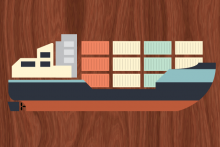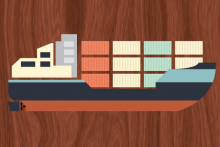
3 skills of teams that succeed with containers
Blog: The Enterprise Project - Enterprise Technology
3 skills of teams that succeed with containers
Jayne Groll
November 5, 2021 – 3:00am
Container adoption is a common step in the DevOps journey for many organizations. But as the number of containerized applications increases, teams become unable to manually sustain the operational processes required to manage and deploy them. Container orchestration via a Kubernetes platform enables them to automate many of these processes.
After an organization adopts a container orchestration approach, human skills still play an important role in container success. At enterprise organizations, teams require specific skills to ensure that they can effectively problem-solve, make improvements, scale, monitor, maintain security, and more.
[ Read also: OpenShift and Kubernetes: What’s the difference? ]
Key skills for teams working with containers
I asked DevOps Institute Ambassadors to share their thoughts on the top skills that teams need for container success. Here’s what landed at the top of the list.
1. The right combination of human and machine skills
The orchestration of containers requires both human and machine skills. Humans should know how to interact with the actual containers and know how to create and tweak configuration files. Learning these tools will require some programming or scripting knowledge and knowledge of the underlying operating systems, such as Linux or FreeBSD. The skills of the humans working with the container orchestration system will be similar to those of a systems administrator and a DevOps engineer.
Overall, when it comes to successful container orchestration, I believe the most important skills are logic, problem-solving, analytical thinking, effective communication, solid troubleshooting skills, and the ability to work in a team. Even though you are the one who is orchestrating containers, you are still part of a team, so you have to think of solutions that are mutually beneficial for everyone involved. – Anshul Lalit, head of technology and transformation, Kongsberg Digital
2. A DevOps mindset with a focus on security
For container success, teams must adopt a DevOps mindset. Success also requires a broad DevOps tooling understanding that container orchestration lifecycle management is conceptually the same as application lifecycle management, with all the necessary steps: source code management, CI/CD automated pipeline, testing, deployment, etc. Furthermore, understanding the security aspect of containerization is extremely important as improper security configuration can introduce unexpected security threats. – Supratip Banerjee, solutions architect, Principal Global Services
[ Continue learning about container orchestration at the next SKILup Day from DevOps Institute on October 21, 2021. ]
3. An understanding of the fundamentals
An engineer in this domain needs good Kubernetes fundamentals and know-how to leverage containerization technology, reduce environment drift, and enable self-contained deliveries to production. It’s important to have the right skills to scale the deployments and make them resilient, so learning the basics is a must. – Parveen Arora, co-founder and director, VVnT SeQuor
[ Want to learn more about building and deploying Kubernetes Operators? Get the free O’Reilly eBooks: Kubernetes Operators: Automating the Container Orchestration Platform and Kubernetes patterns for designing cloud-native apps. ]

What to read next
Leave a Comment
You must be logged in to post a comment.








